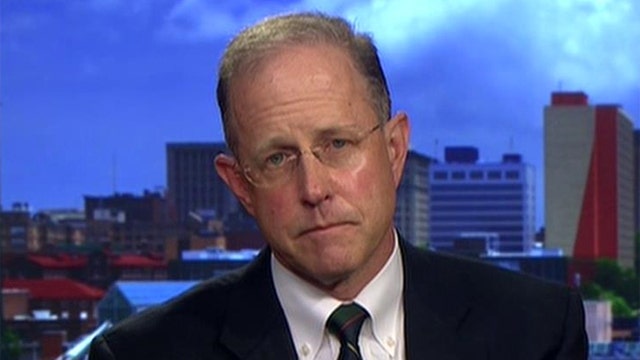Former agent claims FBI concealing evidence in anthrax case
Richard Lambert spent years heading up the FBI's anthrax investigation and is now suing the agency
An ex-director of the FBI’s anthrax investigation says the agency is hiding evidence that casts doubt on its conclusion that Army scientist Bruce Ivins sent the anthrax-filled letters that killed five people and sickened 17 others in 2001.
Richard Lambert made the claims in a civil lawsuit filed April 2 in U.S. District Court in Knoxville, Tennessee. Lambert said Wednesday that the Privacy Act will likely prevent the information’s release unless Congress decides to investigate.
Christopher Allen, an FBI spokesman, said the agency usually does not comment on pending litigation. In December, responding to a General Accountability Office report that anthrax investigators used flawed scientific methods, Allen said the FBI's conclusions were based on "the full evidence before us."
Ivins killed himself in Frederick, Maryland in 2008, as prosecutors prepared to charge him with murder. Jeffrey Taylor, then U.S. attorney for the District of Columbia, told a news conference eight days prior that “based on the evidence we had collected, we could prove his guilt beyond a reasonable doubt.”
Lambert says in his lawsuit that while Ivins might have been the mailer, the circumstantial case against him would not have been enough to convict him. Lambert claims there is a “wealth” of contrary evidence, "which the FBI continues to conceal from Congress and the American people."
Anthrax investigators, under Lambert’s early direction, focused on another Army scientist, Steven Hatfill, who was eventually cleared. Hatfill received $5.8 million to settle his violation-of-privacy lawsuit against the Department of Justice.
Lambert headed the investigation from 2002 to 2006, when he transferred to Knoxville to run the FBI office there until his retirement in 2012. His lawsuit contends the Justice Department illegally caused him to be fired from a subsequent security job at the Energy Department's Oak Ridge National Laboratory because he had filed a whistleblower report in 2006 alleging mismanagement of the anthrax probe.
The alleged mismanagement included "the FBI's fingering of Bruce Ivins as the anthrax mailer" and "the FBI's subsequent efforts to railroad the prosecution of Ivins in the face of daunting exculpatory evidence," Lambert says in his lawsuit.
Lambert says his whistleblower complaints also included understaffing of the investigation; inexperienced team members; restrictions on information sharing; and the FBI laboratory's deliberate concealment from the team of its discovery of human DNA on an anthrax-filled envelope addressed to U.S. Sen. Patrick Leahy.
The Associated Press contributed to this report












































